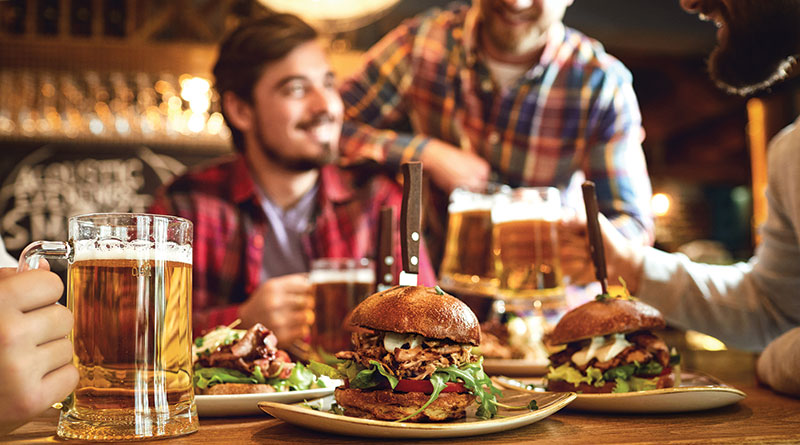January Sales Growth for Pub & Restaurants

Credit and debit card spending grew 1.9 per cent year-on-year in January – the highest uplift since March 2024, but remaining lower than the latest CPIH inflation rate of 3.2 per cent. Despite falling consumer confidence in the UK economy, down five percentage points to 21 per cent, non-essential spending grew 2.7 per cent, led by the resilient performance of entertainment, health & beauty and digital content & subscriptions.
Spending on essential items returned to growth in January, up 0.1 per cent, after four consecutive months of decline. Supermarket spending also increased for the first time since August 2024, up 1.0 per cent year-on-year.
Both pubs, bars & clubs, and restaurants enjoyed growth of 2.6 per cent, showing not everyone spent the month sheltering from the cold. The increase comes despite a third (34 per cent) of consumers saying they significantly reduced their alcohol consumption in January. This suggests the hospitality industry had prepared to cater for the growing popularity of Dry January, having witnessed a rise in punters shifting to low and no alcohol alternatives.
Despite this cost-conscious consumption, food and drink specialist stores saw a 3.9 per cent increase in January. This follows one in 10 (9 per cent) making a New Year’s resolution to cook more at home, perhaps encouraging more local shopping and giving independent stores such as butchers and greengrocers a boost.
Karen Johnson, Head of Retail at Barclays, said:
“January’s figures are a positive signal that non-essential spending should remain strong in 2025. Despite expressing economic uncertainty and a cost-cutting mindset, shoppers are continuing to prioritise the things love – entertainment, wellness and evenings with family and friends.”
Jack Meaning, Chief UK Economist at Barclays:
“With the economy looking like it stagnated in the second half of last year, we’re expecting GDP growth to pick up to 0.9 per cent in 2025. This will have been aided by Thursday’s reduction in interest rates by the Bank of England. We expect Bank Rate to fall to 3.5 per cent before the end of the year, which should give a further boost to consumers who will once again feel the pinch as inflation rises in the coming months, albeit it temporarily.”
